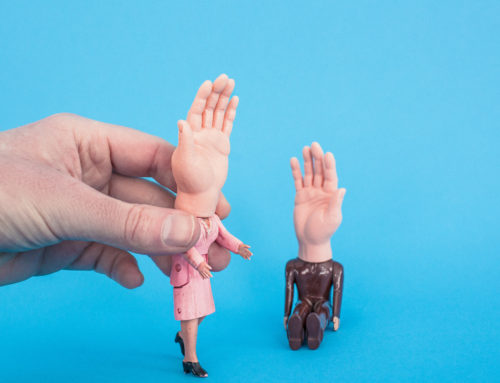I’m going to tell you a story. My father passed away very quickly from an aggressive cancer. I returned home from his out-of-state funeral, exhausted and emotionally drained. My dear husband put me to bed and said, “I’m taking the kids to the pool.” So, I’m sound asleep and there’s pounding on my front door. I run downstairs trying to figure out what’s happening. I’ve got the police there and I’ve got my neighbor there because I’d had my phone shut off. I’m told “Mrs. Frisch. There’s been a horrible accident.”
So, I get in my car and drive to the accident scene. I see my minivan completely totaled. My family is nowhere in sight. There are ambulances, the other car, the other driver. It was awful. I was angry and I was scared. I was looking at the scene trying to figure things out, and people weren’t being helpful. It was complete chaos and I remember just thinking, “my dad just died, this sucks.”
But then I realized that the “this sucks” frame through which I was assessing everything was not the right frame to use. What I practiced then through the whole experience from that moment onward is that not only did this event not take me out, but it is also an incredible memory and one of the best days of my entire life.
 This practice of “reframing” is taught in courses used to build emotional resilience. Think about the people who survived the concentration camps during World War Two. What was discovered when the traits of these people were studied is that they had mastered this practice. Reframing is a way of viewing and experiencing events, ideas, and emotions to find more positive alternatives – to view these things in a more positive light. This can bring you from a place of despair to a place of action, and a place of gratitude.
This practice of “reframing” is taught in courses used to build emotional resilience. Think about the people who survived the concentration camps during World War Two. What was discovered when the traits of these people were studied is that they had mastered this practice. Reframing is a way of viewing and experiencing events, ideas, and emotions to find more positive alternatives – to view these things in a more positive light. This can bring you from a place of despair to a place of action, and a place of gratitude.
So, when I reframed the situation and started walking over to that crushed minivan, I thought positively “I can handle this one, no matter what I’m going to walk into, I’m going to figure it out, I need to find my family and go from there.” I went from standing around, feeling overwhelmed and sorry for myself to taking action and walking to that car to see what we were dealing with. The good news was, I walked around the minivan and saw my husband and two children still standing with only minor injuries and it became the best day of my life. I checked all of my family out, we realized what we had to do and not do, and it brought me to a place of gratitude. I literally walked over and kissed the car. Because I gotta tell you, when you walk to an auto crash scene and your entire car is crushed, but the cavity that held your precious family is still there. It’s a pretty good day.
What I want to invite you to do and realize is that in behavior change, those who can change their behavior can take anything and reframe it – from a concentration camp to a horrible car accident with months of car insurance claims and physical therapy – retelling the story from gratitude and appreciation, from the perspective of what was learned and what became an opportunity.
One of the things I often do when I have a client come to me that’s in a very down space is help them reframe their point of view. For those of you who are managers, when you have an upset employee, you can actually do this with them. Understand that some things were bad, but talk about everything that went right around this bad situation. Focus them in the “right” space, the space of action and change, instead of getting stuck in the negative space drama of the event. This will help them build behavior changing abilities and resilience. Resilience can be as simple as five minutes of daily gratitude.







